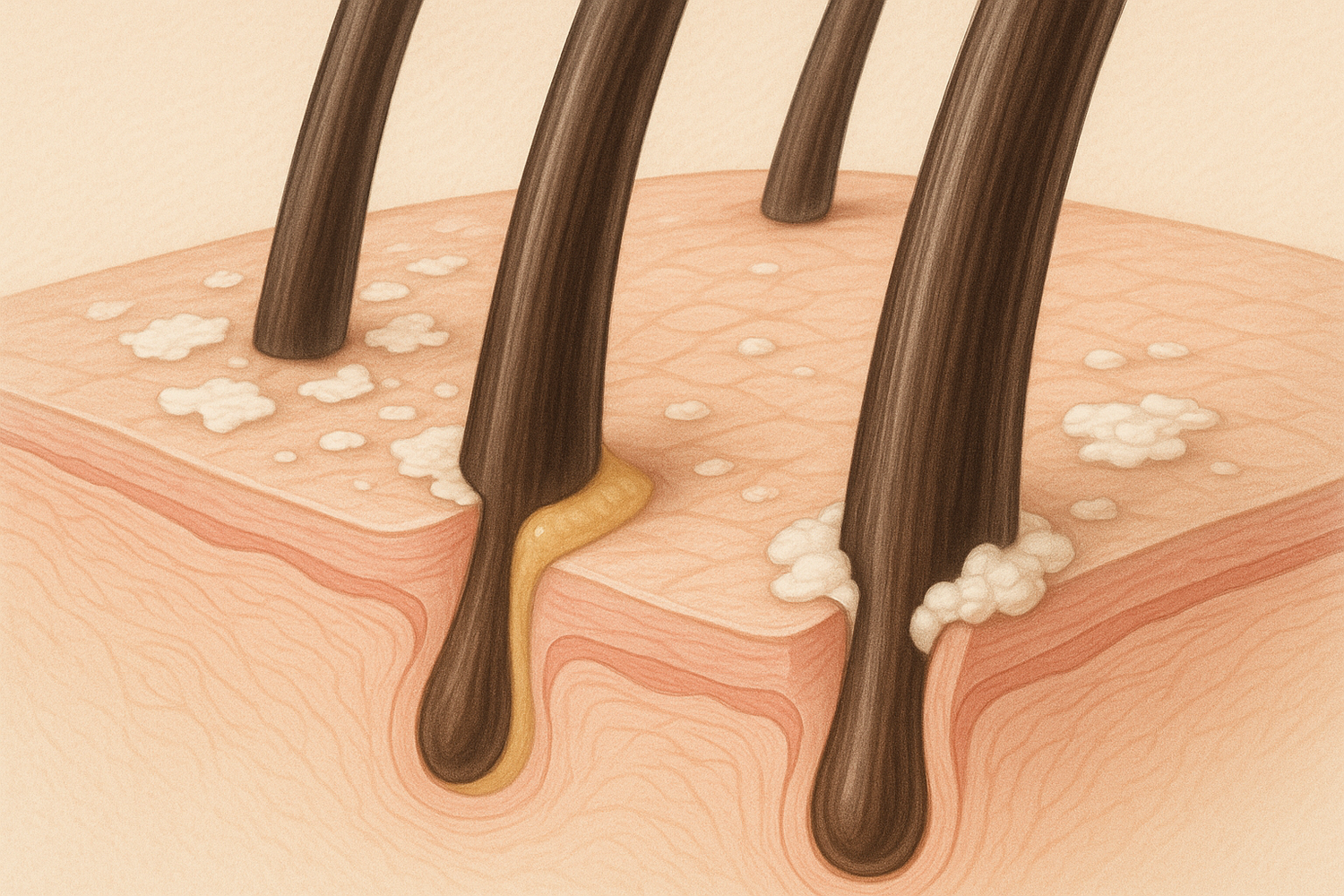From soaps and hair products to cosmetics, lotions, and perfumes, many of the products we put on our skin every day are riddled with toxins and questionable ingredients, including known carcinogens, irritants, and hormone disruptors.
Fragrances
While they may smell pretty, masculine, or calming, fragrances hide a dirty secret. The chemists who create fragrances have over 3000 chemicals to work with. Many of these fragrance chemicals are derived from petrochemicals that are known allergens and hormone and endocrine disruptors. These toxic ingredients can hide under the terms fragrance or parfum and don’t have to be listed on the label.
Petroleum Oil
Companies didn’t want the sludge at the bottom of the oil rigs to go to waste, so it was refined and sold as a skin protectant.As an oil industry derivative, petroleum is not eco-friendly or sustainable, and it isn’t so skin friendly either. A 2011 study in the Journal for Women’s Health found petroleum in cosmetics contains toxic hydrocarbons.The researchers went on to say there’s strong evidence these “mineral oil hydrocarbons are the greatest contaminant of the human body.” The toxins accumulated in the women’s body fat and were also found in their breastmilk.Hydrocarbons and toxins aside, petroleum forms a non-breathable layer on skin. While this layer locks in skin’s natural moisture, it can also prevent it from healing. Petroleum also dries out and blocks pores.
Phthalates
A 2010 article in the journal Alternative Medicine Review pointed out some major problems with these chemicals. The scientists at Made Safe also weigh in on the issue.
Here are some of the top health issues linked with phthalates:
- Autism
- ADHD
- Neurological disorders
- Cancers and breast cancer
- Developmental and reproductive toxicity
- Sperm damage
- Altered genital development in boys
- Infertility Testicular dysgenesis
- Obesity
- Asthma and allergies
- Fibroids (these can occur in the uterus)
- Reproductive system disruption
- Endocrine system disruption
Parabens
Parabens can mimic estrogen and cause hormone disruption. Certain parabens can also cause breast cancer and issues with reproduction and development according to 2012 research in the Journal of Applied Toxicology.
Aluminum
Scientists don’t understand how aluminum is absorbed through the skin. Aluminum is found in Alzheimer’s patients’ brains and is thought to contribute to brain dysfunction, Parkinson’s disease, and neurological disease, according to a 2014 report by the Scientific Committee on Consumer Safety.
Although research has not proven a link between aluminum and specific brain disorders it IS known to be toxic to the brain. Aluminum is also suspected to play a role in breast cancer.
PFOAS, PFC's and Teflon Chemicals
There are thousands of fluorinated chemicals in our food, water, and cosmetics. Known as PFCs or PFASs they were originally intended to replace PFOAs (which are confirmed toxins). Rats exposed to GenX Teflon had more preterm births, low birth weights, and delayed puberty. When rats were exposed to high doses of the chemical they gasped in pain, had seizures, and dropped dead within hours.
Vitamin A (Retinyl Palmitate or Retinoic Acid)
Although vitamin A is essential to a healthy body, the synthetic version, retinyl palmitate… not so much. When retinyl palmitate is applied to skin that’s then exposed to sunlight it may cause skin damage. Some studies have also shown strong skin irritation and sensitivity.
Polyethylene Glycols and Polysorbate (PEGs)PEGs
are frequently contaminated with 1,4 dioxane. Several health agencies have reported 1,4 dioxane probably causes cancer and it’s been linked with breast cancer and tumors in the liver, gallbladder, nose, lungs, and skin.
Triclosan
The chemical is thought to contribute to deadly antibiotic resistance and negatively affect thyroid health. Triclosan can damage the endocrine system and reproductive hormone function even at very low doses.
Methylisothiazolinone (MIT)
This preservative was named “allergen of the year” by the American Contact Dermatitis Society. MIT is strongly linked with skin sensitization and irritation, the main reason why it is restricted in other countries. A 2002 study in the Journal of Neuroscience also found MIT is highly toxic to brain neurons and recommended further safety research.




